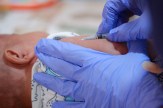This COVID-19 survivor is now fighting against patient loneliness
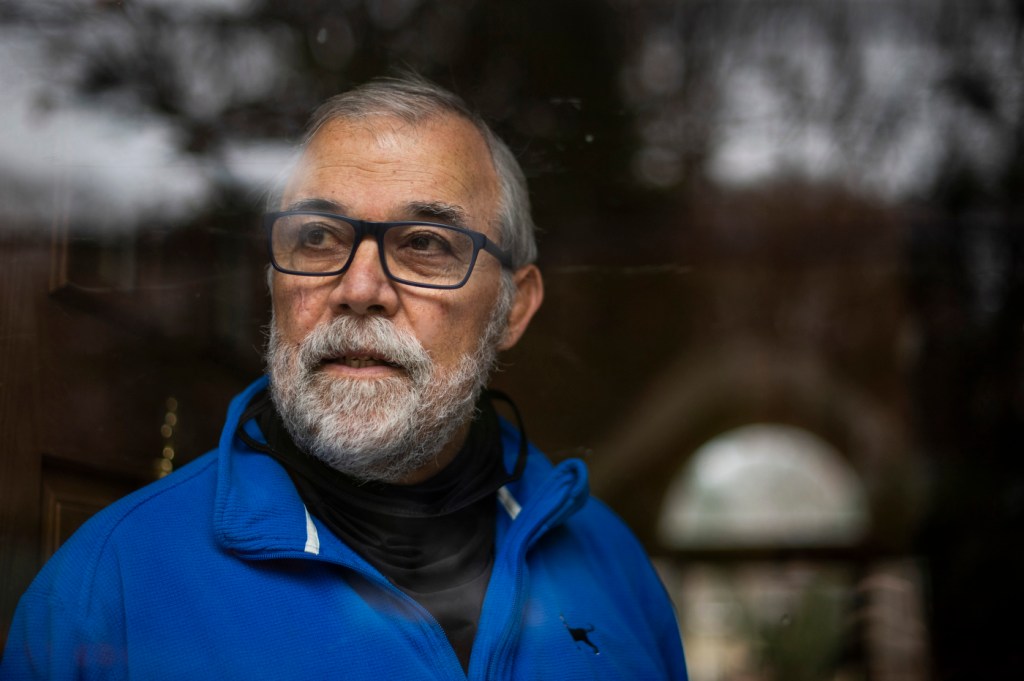
The well-known dangers of COVID-19 include fatigue, shortness of breath, loss of smell and taste, memory and concentration problems, and long-term damage to the heart, lungs, brain, and other organs.
Its neglected threat, says Frank Cutitta, is loneliness.
Cutitta, a media consultant and Northeastern lecturer, was hospitalized and in a rehab clinic for a total of 100 days last spring, 40 of which he spent in a medically-induced coma. What sticks with him months later, amid the near-death experiences he survived, are the enduring memories of being alone. Prolonged loneliness can have a negative effect on the immune system and the brain, research has shown.
“You’re lonely while you’re in a coma,” says Cutitta, who returned home in July. “When you do wake up, you try to rewind and rebuild what has happened.”
Cutitta realized, throughout his long struggle to survive and recover, that his experiences were far from unique. The lessons of his convalescence have set him on a mission to reduce patient isolation and loneliness—which, he believes, will lead to a higher quality of healthcare overall.
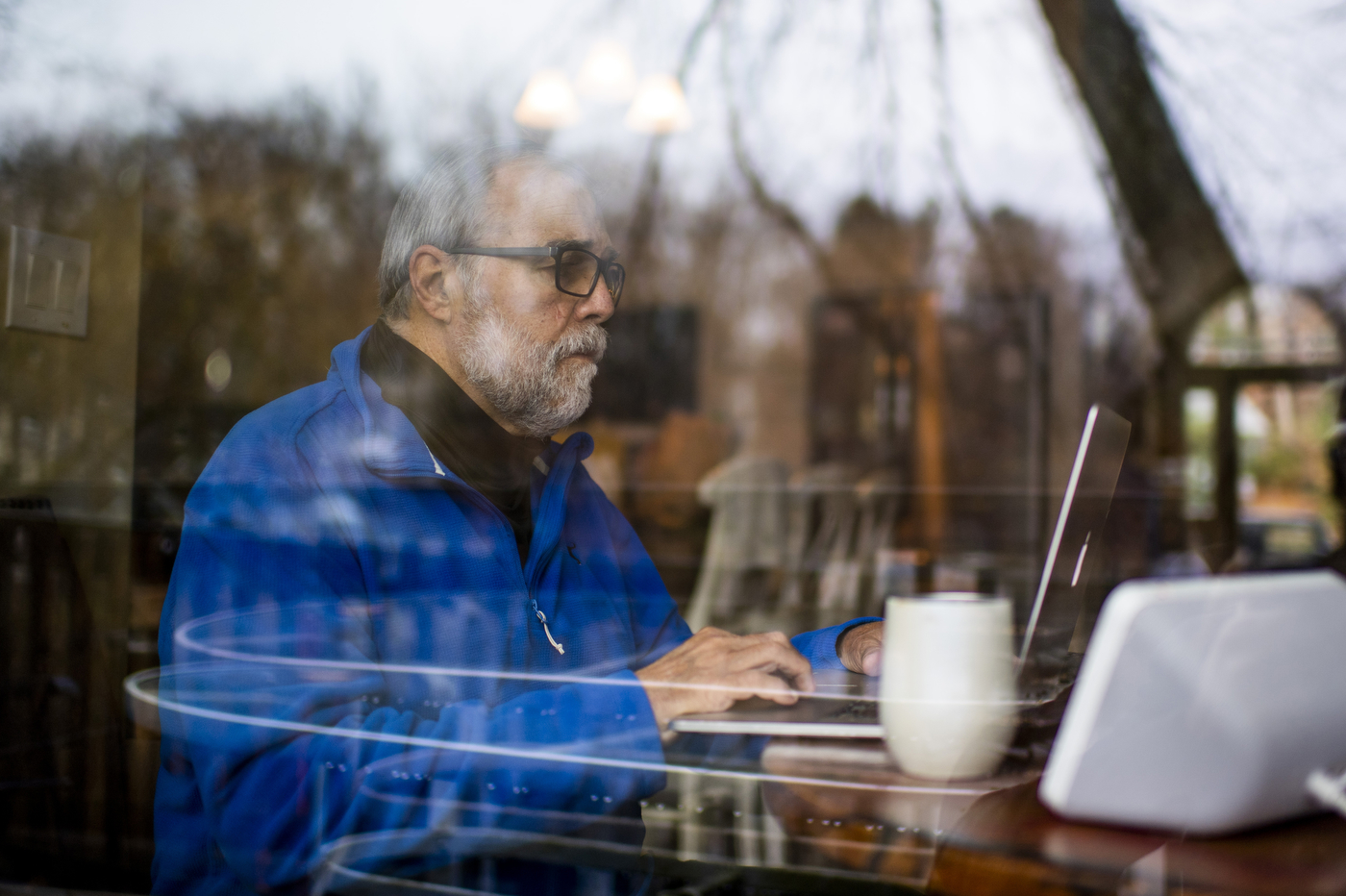
Cutitta, a vibrant former wrestler who has traveled to more than 100 countries, was suffering from shallow breathing and delirium in March when he was forced to go to a suburban Boston hospital. His wife, Leslie, had used an oximeter reading to prove to him that his blood-oxygen level had plummeted. His lungs were filling with fluid, his kidneys were failing; within an hour of being admitted, Cutitta was told that he would be intubated, transferred to Massachusetts General Hospital, and put on a ventilator—with no idea of when he would wake up.
Cutitta’s wife and two daughters were not allowed to visit him due to concerns about spreading the coronavirus. While he was comatose, his wife moved in with a friend near the hospital, delivered food to her husband’s nurses, and asked them to outfit him with headphones playing his beloved music of Luciano Pavarotti, Andrea Bocelli, and The Beach Boys. Cutitta doesn’t recall listening to the music, but he is convinced it helped him.
“The antidote to comatose loneliness is to assure that the brain is being stimulated by familiar voices, music, and sounds,” says Cutitta, 68, who twice received last rites. “I truly believe that because my family and clinicians reduced that unconscious loneliness, I dodged a bullet on brain disorders when I came out of it. The real loneliness began after I was conscious and aware that I was isolated in so many ways.”
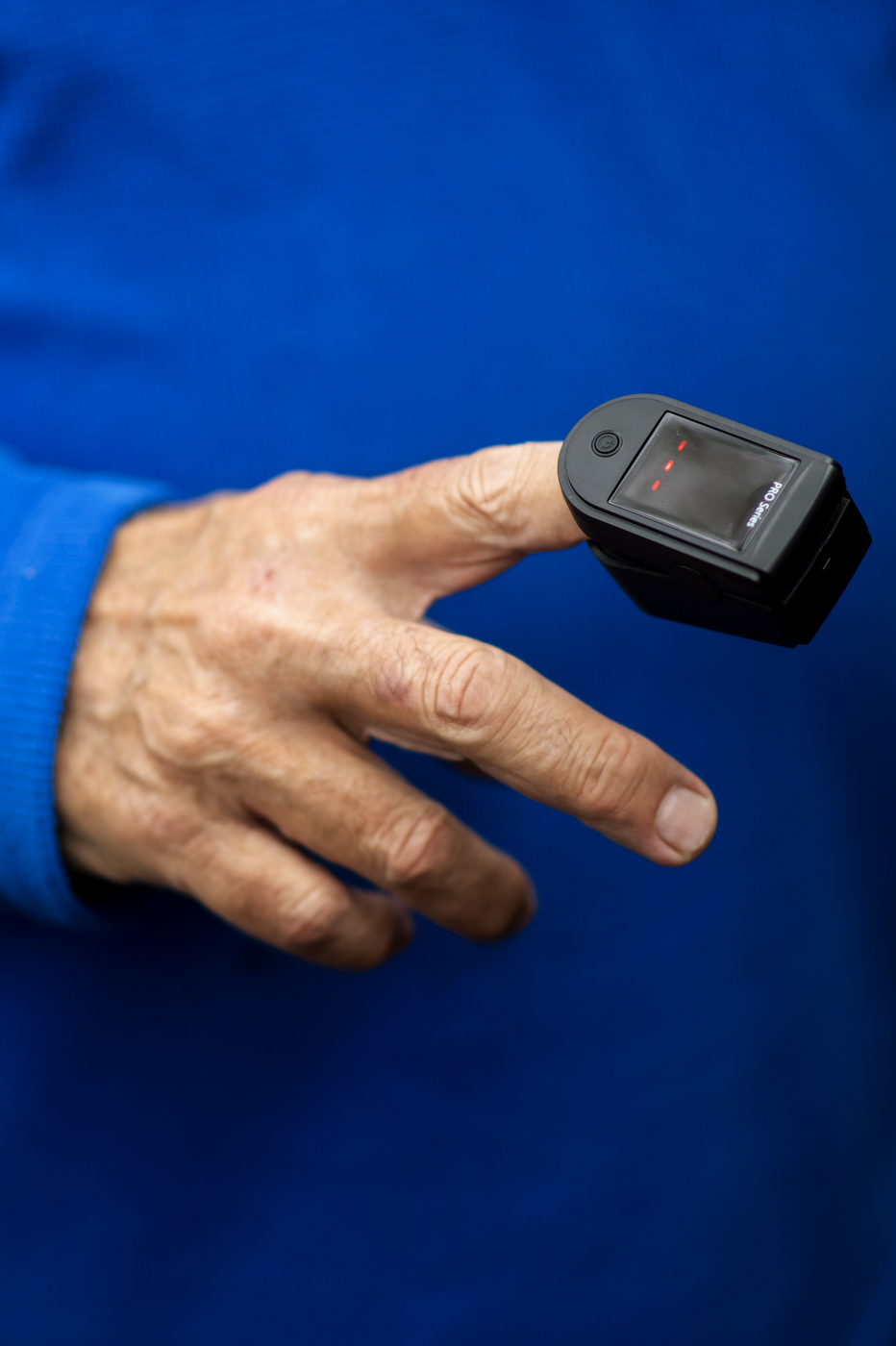
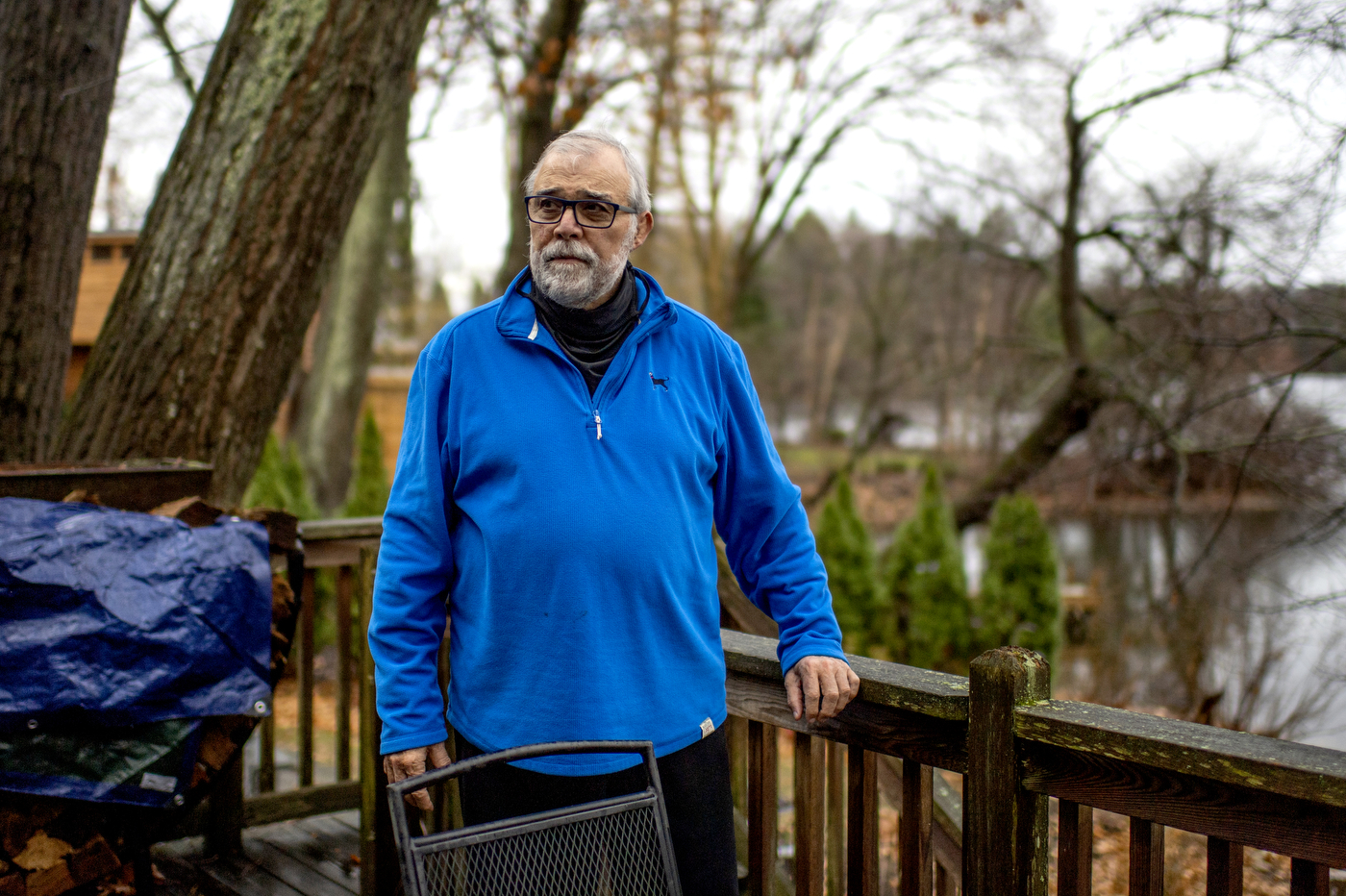
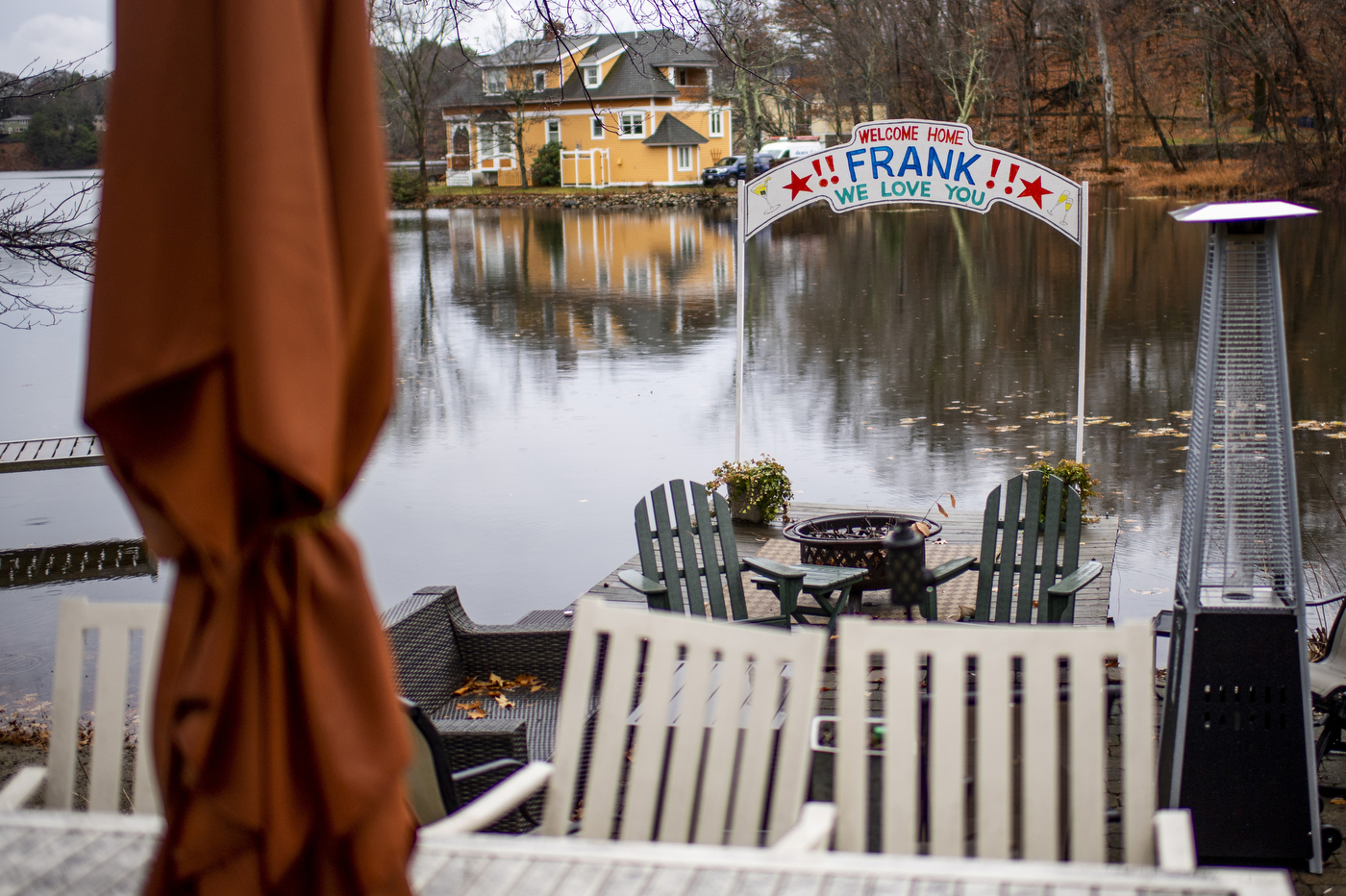
After awakening from the coma, Cutitta spent the next two months in the hospital and at a rehab clinic. During his 100 days away from home, Cutitta saw only three maskless faces, a dehumanizing necessity of the pandemic that contributes to the profound sense of detachment experienced by patients and the healthcare workers who treat them.
“Anonymity fuels loneliness,” he says.
Cutitta believes that lessons learned from the unprecedented experience of COVID-19, which has inflicted isolation and solitude on a global scale, could help transform patient care. Carmen Sceppa, dean of the Bouvé College of Health Sciences, agrees that COVID-19 has challenged an already fragmented and siloed healthcare system.
“Mr. Cutitta’s incredible journey reinforces the charge Bouvé is leading to change the traditional paradigm of healthcare to healthspan—focused on quality of life and overall health despite health risks, disease and disability,” says Sceppa.
Bouvé, she adds, is striving to integrate personalized care with technology, data, and innovation.
“A true partnership between the healthcare provider team and the patient will accelerate health and well-being for all,” Sceppa says.
Based on his own experiences, and research that he began conducting while infirmed, Cutitta has been advocating for a new approach to patient care that accounts for the social, emotional, and spiritual damage inflicted by COVID-19 as well as other diseases.
“Loneliness is right up there with smoking and obesity as a silent killer, especially in the elderly population,” says Cutitta, who adds that he wasn’t suicidal. “I was sequestered from real human contact. It wasn’t until my last 10 days that I was able to see my family. Otherwise it was on FaceTime.”
In those early days of the pandemic, as healthcare workers were still learning about how the virus spreads, hospital rules were strict. Caregivers could only be in his presence for a few minutes at a time.
“I was experiencing this dark period of loneliness because I spent 22 hours—some days 23 hours—talking to no one,” Cutitta says. “I was sequestered in quarantine, and doctors could only talk to me for 10 minutes. It’s like prison treatment.”
Cutitta understands the harsh limitations faced by doctors and nurses, who themselves have been overwhelmed by the public health crisis. The dearth of resources available to healthcare workers and patients alike offer clear signals that the approach to patient care is in need of overhaul, he says.
“It’s about how these institutions institutionalize the loneliness,” Cutitta says. “While I was talking to people as part of my primary research, I found people in healthcare saying, ‘Toughen up, lonely boy. You think you’re lonely? Just think how lonely we are.’”
An oncologist told Cutitta that he was used to developing close relationships with patients until they were cured of cancer or killed by it. In the COVID-19 unit, he said, there is little patient engagement for doctors or nurses who themselves are isolated from their families. They watch patients die alone, without the comfort of their families, and it is heartbreaking.
Many healthcare workers have spoken of the isolation—and its long-
term consequences—that they and their patients and families have experienced during the pandemic. Adaptations are already being made: In Worcester, Massachusetts, a new field hospital has incorporated a patient lounge meant to encourage social interaction.
“The hospitals tend to want to medicate the loneliness away—they offer some powerful, depression-reducing drug that isn’t really a cure for what’s happening here,” Cutitta says. “And as we know, some of these drugs can cause greater problems than the original ailments. But they can’t get the staffing to care for people, because the last thing that they want to do is bring more people into the room to hold someone’s hand.”
Cutitta found himself dreading the prospect of trying to sleep.
“I would be fearful for the end of the day,” he says, “because the medication isn’t working, I don’t know how I’m going to sleep, and then there’s the fear of waking up in the morning and starting the whole thing again.”
The smallest details take on exaggerated importance for isolated patients, Cutitta says. He took great joy in physical therapy, as painful as was at times, and the shower bench that enabled him to bathe “became my best friend,” he says.
“The great lie for lonely people is when someone says, ‘I’ll be back in a minute,’” Cutitta says. “There is no temporal relationship with the word ‘minute’ to the reality of being in a COVID unit. When I speak to people in healthcare about this, they laugh and nod, because they know exactly what I’m talking about. But when you’re a patient in a hospital that is short-staffed, the translation is entirely different.”
Cutitta worked his hard-earned point of view into a Northeastern graduate course, Intercultural Communication, that he taught this fall.
“I was able to have my students research the diverse cultures within healthcare providers and how various countries and cultures responded to the pandemic, and how those strategies aligned with the works of some of the leading cross-cultural theorists,” he says. “While the virus was devastating, it did create some very interesting opportunities for teaching.”
For media inquiries, please contact media@northeastern.edu.





